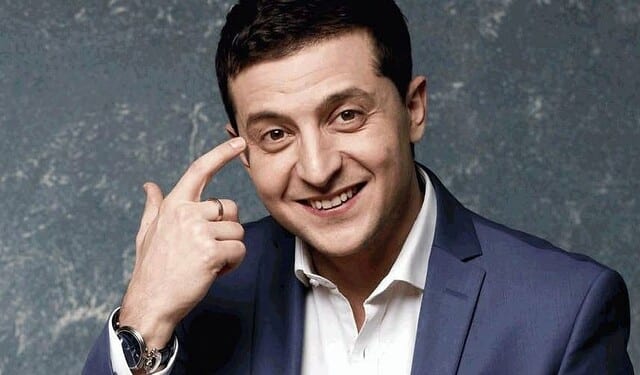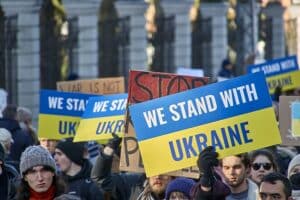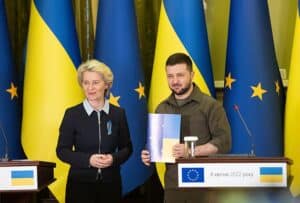On 21 April the presidential runoff was won by comedian and frontrunner Volodymyr Zelensky. He defeated incumbent President Petro Poroshenko with 73 percent of the votes. Poroshenko got 25 percent of the votes. The turnout of the votes was just over 62 percent. It now seems that Zelensky’s role in the television series “Servant of the People” has become reality, as he plays a teacher-turned-president that goes on to wipe out corruption and serves the people to end the status-quo. For a majority of the people, this refers to the establishment of Poroshenko and the government’s failure to end corruption over the years.
Campaign and road to victory
Zelensky’s political career began officially when he announced, on last New Year’s Eve, his intention to run for president in 2019. Afterwards, his Servant of the People party, the former Party of Decisive Change, nominated him as their presidential candidate. Zelensky described himself during his campaign as “a regular man who has come to destroy this system”, a system that he labelled as being steeped in corruption and “nepotism”. During his campaign, Zelensky and his TV series team of co-stars and producers used social media and other online platforms to promote themselves as real servants of the people, by inviting the public to play a key role in shaping the campaign and the future party program. Right from the start, Zelensky’s unusual campaign challenged Poroshenko, who chose a more traditional campaign strategy. Zelensky relied heavily on his online followers, with whom he shared funny posters and bits of comedy. This media campaign received a lot of support from younger Ukrainians who could relate to Zelensky’s anti-establishment quotes about nepotism, corruption and the contrast between the rich and poor in the country.
Both runoff candidates met in Kiev’s Olympic football stadium for a fierce election debate. Poroshenko set himself as the “wartime leader” during the five-year conflict in eastern Ukraine, putting high on the agenda security and defence. Moreover, his campaign promoted the image of him being the saviour of the Ukrainian language and stressed his role in the separation from the Russian Orthodox Church. During the debate, he accused Zelensky of not being able to stand strong against Russian President Vladimir Putin. Zelensky, on the other hand, said his candidacy was the direct result of the president being unable to fulfil his promises for reforms.
Promises
Right after the election results Zelensky promised to never let down his supporters. He views himself as a “new face” without political experience, that Ukrainians can identify themselves with. During his campaign, Zelensky already called for help from “reform-minded” former ministers to reassure investors about his policies, for example about the role of the International Monetary Fund (IMF) in Ukraine. When it comes to his image – beefed up by Poroshenko’s campaign – of being a “puppet” of oligarch Ihor Kolomoisky, Zelensky emphasizes that their connection is only professional. However, critics of Zelensky and proponents of Poroshenko fear great uncertainty for a country that is at war. Zelensky needs to specify his policy plans in order to keep the public’s trust.
In the series Servant of the People the president fails to appoint ministers and other government roles, so he finally hires his own family and friends. After the election results, Zelensky promised the public to bring “new people” to the government. Moreover, he will make a top priority of releasing Ukrainian prisoners in Russia and he will recommence diplomatic talks for resolving the conflict in Eastern Ukraine. He will also support Ukraine’s membership in NATO, but only after a referendum is held on the issue. Poroshenko declared at a press conference that he will help Zelensky prepare for the role of president, and will show his support to the new president with any matter that has to do with strengthening ties with the European Union and NATO. The European Council and the European Commission also expressed their support for Ukraine’s reform path.
Sources: Al Jazeera, Radio Free Europe, Reuters I, Reuters II, Unian
Photo: Flickr



